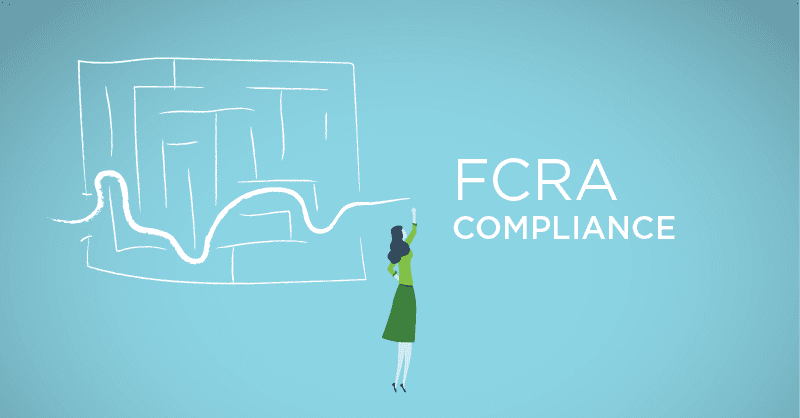The Role of CMS for Business Managing FCRA Compliance in Your Hiring Process
Businesses nowadays understand how important it is to maintain compliance with the laws and regulations dictated by the Fair Credit Reporting Act (FCRA). When it comes to hiring processes, using a Compliance Management System (CMS) is essential to stay on top of the regulations and avoid costly mistakes.
But, what exactly is a Compliance Management System (CMS)? How does it help your business manage FCRA compliance in your hiring process? In this article, we’ll check out the role of CMS in managing FCRA compliance and provide some tips on how you can get the most out of using CMS.
We’ll also discuss why consulting an FCRA attorney or legal expert can be beneficial. By understanding what CMS can do for your business, you can make sure that your hiring process remains compliant with all applicable laws.
What is FCRA Compliance and Why Do Businesses Need It?
Under FCRA, companies that conduct background checks need to ensure maximum accuracy when conducting criminal and credit background investigations. Employers must also disclose that consumer reports can be used in making employment decisions. They should also secure consent to obtain such reports.
Overview of the Fair Credit Reporting Act (FCRA)
The Fair Credit Reporting Act was enacted in the 1970s to protect consumers from potential harm caused by inaccurate or incomplete credit reports. In recent years, FCRA compliance has become more important for businesses as a means of maintaining the accuracy and fairness of their hiring process.
By adhering to this federal law, consulting with experienced FCRA attorneys, and implementing a good CMS, businesses can ensure the accuracy, fairness, and privacy of consumer information, when conducting their hiring process. It enables them to use credit reports when making decisions about potential employees, but also limits who can access them and what purposes they can be used for.
Why You Need to Hire an FCRA Attorney During the Hiring Process
It’s easy to overlook the complexity of the FCRA during the hiring process. But, the truth is that the process can be complex indeed. Think about when consumers accuse you for infringing their rights in ways like;
- Accessing their credit reports without their prior knowledge
- Wrong information in their background check or tenant screening process.
In such instances, you may be held liable under the Fair Credit Reporting Act. That’s why it’s best to always engage experienced FCRA attorneys. They help to protect you against negligent hiring claims and ensure you are compliant throughout your background check process.
In short, you can benefit from the FCRA attorneys in the following ways:
-
Helps With Analyzing Applicant Backgrounds
When checking the applicant’s background, an FCRA attorney can assist with ensuring that:
- You give applicants a reasonable amount of time to review background check results.
- You inform applicants of their rights under the FCRA before conducting a background check.
- You have written policies and procedures that adhere to the requirements of the FCRA.
-
Helps in Choosing the Right CMS
An FCRA Attorney can also help in selecting a Compliance Management System (CMS) for your business. A CMS simplifies the regulations and processes required to maintain FCRA compliance when managing your hiring process.
Steps Businesses Must Take to Comply With FCRA Laws and Regulations
Hiring the right employees for your company is no small feat. With the numerous laws that must be adhered to, understanding your legal obligations is paramount. Organizations must observe several steps to comply with FCRA laws and regulations when screening prospective or current employees.
- The first step is to provide written disclosure to the employee or applicant, notifying them that consumer reports may be used for employment decisions. An explanatory statement must also be included, detailing their rights under the FCRA.
- The second step is for employers to obtain written permission from employees or applicants to access consumer reports.
Thus, a Compliance Management System can enable businesses to streamline this process in a compliant way. Additionally, a CMS can help companies manage a wide range of personnel-related matters throughout the life cycle of the employee – from onboarding to offboarding and beyond.
What Is a Compliance Management System (CMS)?

CMS is designed to help organizations follow the requirements set forth by FCRA. CMS offers a centralized platform for managing background screening activities throughout the entire employee onboarding process. It allows employers to be both compliant and organized at the same time.
A compliance management system, or CMS, is an effective way for businesses to comply with FCRA regulations. It is a comprehensive system of documents, processes, tools, and internal controls that help manage and reduce the risk of violating regulations.
At its core, a CMS includes policies and procedures that ensure companies understand their obligations under FCRA regulations. Furthermore, it also involves monitoring programs and testing to ensure compliance.
Records of Compliance
An essential part of a Compliance Management System is to keep records of compliance efforts. This includes documents such as worksheets and reports that show how the organization is managing compliance. This record-keeping will help if there is ever an audit or legal action taken against your business for non-compliance with laws or regulations.
Policies and Procedures
The first step in implementing a CMS is to create policies and procedures that outline the organization’s responsibilities under FCRA laws. It is important to have clear expectations for the entire hiring process in terms of employee background checks, consent forms, and other aspects of the hiring process that are covered by FCRA laws.
Tools and Internal Controls
To make sure that FCRA regulations are followed throughout the organization, it is important to have tools in place such as software programs or other applications. They help monitor activities related to compliance.
Additionally, internal controls are important so that employees understand their responsibilities when it comes to complying with FCRA regulations. Internal controls can also help identify areas where improvements can be made to ensure full compliance with all applicable laws and regulations.
Benefits of Having a CMS for Businesses Managing FCRA Compliance
A CMS is an essential tool for an organization to have in place when managing FCRA compliance. It’s a comprehensive system that helps companies better address risk management. It makes the difference between passing or failing an audit.
So, the benefits include:
-
Improves Monitoring Procedures
A CMS brings together legal, regulatory, and business requirements into one centralized system, making it easier to monitor and control all the areas of compliance that your organization must adhere to. It can be used to monitor employee certification and training, ensure that processes are carried out properly, improve data accuracy, document evidence of compliance activities, and more.
-
Automates Processes with Technology
Because a CMS is designed to integrate with existing technology systems, it can automate processes such as reporting, which can save time as well as money. It allows organizations to quickly identify any discrepancies or problems in their compliance processes. Hence, the issues can be addressed immediately and efficiently.
-
Enhances Regulatory Clarity and Compliance Assurance
With a CMS in place, businesses are best able to identify areas where they may be exposed to FCRA compliance issues or risks. As a result, they can create policies that address potential issues. It also provides greater clarity into what is required by regulators and how each individual’s role fits into the bigger picture of maintaining FCRA compliance across the organization.
Conclusion
With the Fair Credit Reporting Act governing the use of consumer credit information, employers must be aware of the regulations that apply to their hiring process. With a Compliance Management System, employers can ensure that the credit reports they use meet the FCRA requirements.
Without FCRA compliance, errors on the credit report that employers use could result in compromised consumer privacy, FCRA dispute, or a consumer being denied a loan, job, or even home.
So, if you need assistance with FCRA compliance, you should seek out the right Compliance Management System provider who can help ensure that your hiring process is being conducted ethically and lawfully.
Read More:Enterprise Content Management Platform for Knowledge Management




